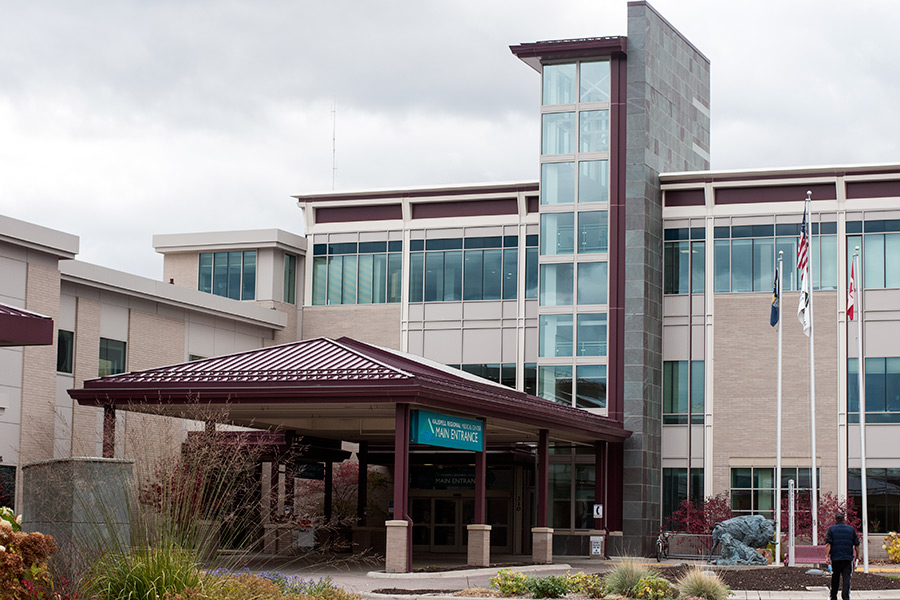Officials with Kalispell Regional Medical Center are trying to dispel a false rumor on social media and online that the hospital received a patient with “Ebola-like symptoms” last week.
In a company-wide memo that was published online Tuesday, the hospital said it thoroughly investigated the rumor and found that it was “categorically untrue.”
According to a post that made rounds on various Internet chat rooms and social media this week, the hospital had allegedly received a patient Oct. 22 who recently returned from West Africa and had a high fever, was vomiting and had diarrhea. The story went on to say that the patient was transferred from Kalispell to St. Patrick Hospital in Missoula for additional treatment.
“Usually we don’t respond to rumors like this but we felt we needed to in this instance because there is so much public concern about Ebola,” KRMC public information officer Allison Meikicke told the Beacon. “This story is simply not true.”
Meikicke said the hospital fielded numerous calls about the rumor.
“We take these potential health crises very seriously. We also take rumors regarding KRMC seriously,” the hospital’s Chief Operating Officer, Dan Wilson, and Infectious Disease Specialist Dr. Jeff Tjaden, said in the statement.
Hospital officials launched a thorough investigation and deemed that it was false. It is very unlikely there would be an Ebola case in Northwest Montana or Kalispell, hospital officials said, but despite the remote chances of it happening, the hospital is still preparing for the possibility. KRMC, along with North Valley Hospital in Whitefish, have both identified quarantine rooms within their facilities just in case someone with Ebola symptoms comes to the hospital. Both hospitals have also put together an Ebola emergency response team that is meeting almost daily.
While the epicenter of the outbreak is in Africa, specifically Guinea, Liberia and Sierra Leone, there have been four cases reported in the U.S., including one fatality. Last week, a New York City doctor who had gone overseas to treat patients was stricken with the virus. As of Oct. 27, he was in serious but stable condition.
Ebola was first discovered in 1976 and it is believed that bats carry the deadly virus. Humans can contract it if they are exposed to the bodily fluids of someone who has the disease. Between 1976 and 2007, there were 1,755 cases of the virus resulting in 1,133 deaths. This year, as of Oct. 22, there have been 9,936 cases and 4,877 deaths.
